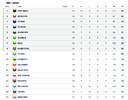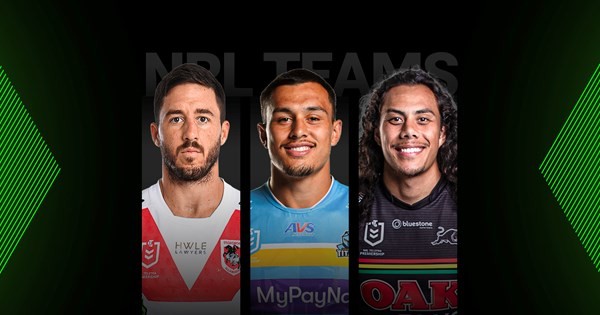balmainforever
Dibs
- Sep 4, 2003
- 25,071
- 29,865
- AFL Club
- Richmond
- Other Teams
- Balmain, GreenBay, Edmonton, Celtic
- Moderator
- #1
Thursday 29th June
Cronulla-Sutherland vs St.George-Illawarra (PointsBet Stadium - 19:50)
Friday 30th June
New Zealand vs South Sydney (Go Media Stadium - 18:00)
Melbourne vs Penrith (Marvel Stadium - 20:00)
Saturday 1st July
Canberra vs Gold Coast (GIO Stadium - 15:00)
North Queensland vs Wests Tigers (Queensland Country Bank Stadium - 17:30)
Brisbane vs Dolphins (The Gabba - 19:35)
Sunday 2nd July
Canterbury-Bankstown vs Newcastle (Accor Stadium - 14:00)
Manly-Warringah vs Sydney Roosters (4 Pines Park - 16:05)
Bye: Parramatta
Cronulla-Sutherland vs St.George-Illawarra (PointsBet Stadium - 19:50)
Friday 30th June
New Zealand vs South Sydney (Go Media Stadium - 18:00)
Melbourne vs Penrith (Marvel Stadium - 20:00)
Saturday 1st July
Canberra vs Gold Coast (GIO Stadium - 15:00)
North Queensland vs Wests Tigers (Queensland Country Bank Stadium - 17:30)
Brisbane vs Dolphins (The Gabba - 19:35)
Sunday 2nd July
Canterbury-Bankstown vs Newcastle (Accor Stadium - 14:00)
Manly-Warringah vs Sydney Roosters (4 Pines Park - 16:05)
Bye: Parramatta





